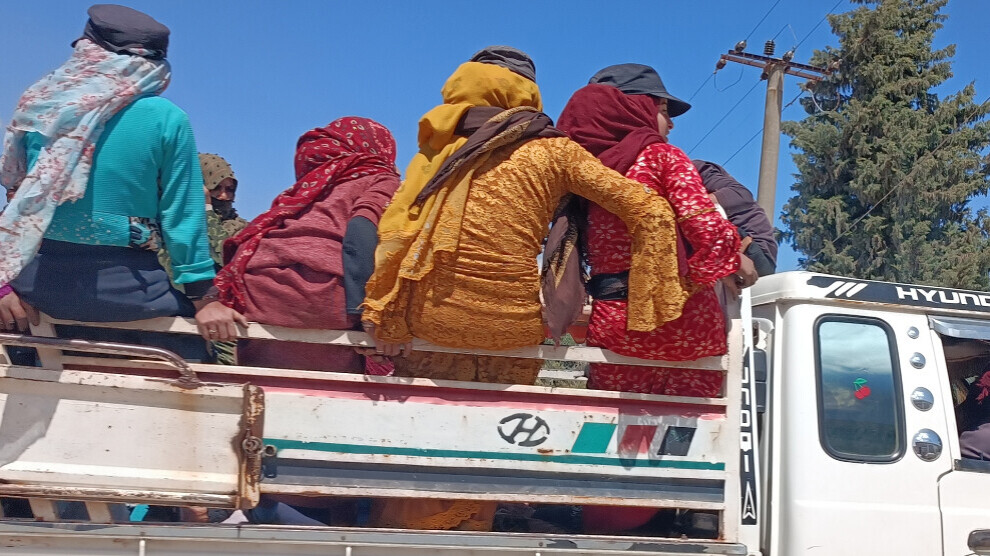Women workers face harassment in Idlib
Women workers living in IDPs camps of Idlib, an occupied city in northeastern Syria, are subjected to harassment by male drivers while traveling from camps to their workplaces.

HADEEL Al-OMAR
Idlib- Displaced women workers in the city of Idlib, occupied by the Turkish state and Turkish-backed factions, experience problems from travelling from IDPs camps to their workplaces due to the lack of public transportation. They have to use trucks or walk to go to their workplaces; however, they are subjected to private car drivers.
Hadiya Noureddine, 29, is one of the displaced women living in the Harbnoush camp, working in a shop far away from the camp. Every day, she thinks about how she can go to her workplace early in the morning. She is often late for work due to the lack of public transportation. She has to hitchhike to go to her workplace. “I am constantly harassed by the drivers, who want to talk to me, learn where I live and ask for my phone number.”
She was subjected to harassment
Hasnaa al-Zarzour, 31, lives in the Qah camp for internally displaced persons (IDP) in northern Idlib but she works at a shopping mall in the town of Al-Dana. Due to the lack of public transportation, she also has to hitchhike to go to her workplace on time; however, she is subjected to harassment by drivers. “Drivers often ask me to sit next to them without allowing me to sit in the back seats of their cars. So I often refuse to get in. However, I have to get in so as not to be late for work and get fired. Many drivers attempted to harass me. One day, a driver picked me up on a rainy day. He tried to harass me but then stopped the car when I began to scream and ask for help,” said Hasnaa Al-Zarzour, whose husband disappeared in the prison of the Syrian government six years ago. “I have to work for my three children.”
‘The biggest challenge for me is the lack of transportation’
Sumaya Al-Kirwan, 36, lives in the Deir Hassan camp for internally displaced persons in northern Idlib. She also has to hitchhike because she works in a sewing workshop in the town of Sarmada. “The biggest challenge for me is the lack of transportation,” she told us. “I am not the only woman suffering from the lack of public transportation. There are many women in the camp who have to hitchhike to go to their workplaces. Some decide to stop working even if they have to earn money for their families."
